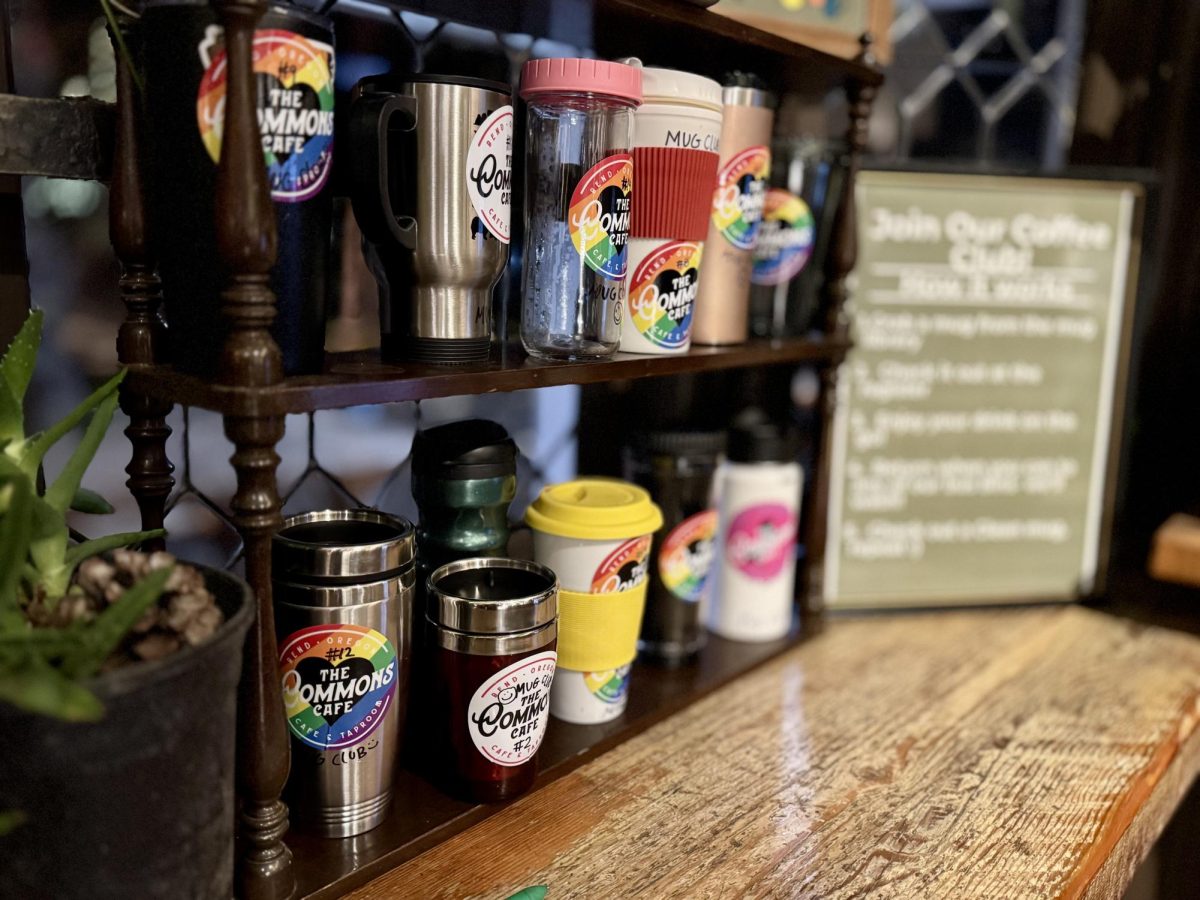Students and faculty are making a concerted effort to create an environmentally-friendly campus, according to Joe Viola.
“Any time we have an opportunity to be green, we explore every option,” Viola, director of Central Oregon Community College Campus Services said.
 Alternative building practices is one option that has been implemented on campus, Viola explained. Four new buildings on campus have been built to Earth Advantage, gold level, green building standards. That includes 35 percent lower energy use than a standard code building and low-use water fixtures.
Alternative building practices is one option that has been implemented on campus, Viola explained. Four new buildings on campus have been built to Earth Advantage, gold level, green building standards. That includes 35 percent lower energy use than a standard code building and low-use water fixtures.
Careful attention was also given to land conservation during construction, according to Viola, and much of the materials used were either local or recycled products.
“People feel good when they are in a clean and healthy environment,” Viola said. “As a school, it’s worth spending a little more on environmentally-friendly options.”
Students, whether they know it or not, contribute to the greening of COCC.
In 2006 the Associated Students of Central Oregon Community College held a special election, Viola said, voting to raise student fees by 25 cents to pay to participate in Pacific Power’s Blue Sky program.
The program ensures a portion of the energy used on campus comes from renewable energy resources, Viola explained, and costs nine percent more in electricity bills.
“That is something that students are supporting through ASCOCC,” Viola said. “If they didn’t do that, we may not be using renewable energy.”
The concern of expense is not taken lightly by Viola, who generally looks for low-risk, high-reward upgrades.
“We lean toward being green [but] we don’t go out on a limb,” Viola said. “When cost is an issue, we have to take a longer look.”
Campus Services also focuses on smaller changes to be more environmentally friendly.
The department provides recycle receptacles in every building, so students can have a more sustainable choice for their waste, explained Viola, and custodians use eco-friendly cleaning supplies for better indoor air quality.
“We have to make it easy for people,” Viola said. “Changing habits and educating people is really important.”
Mick McCann, who is an environmental geography instructor and member of the Sustainability Committee at COCC, agrees with Viola.
“[We need] a change in culture and psychology,” McCann said.
In 2012 McCann conducted a “trash analysis” of the Modoc building at COCC. He found 40-50 percent of materials in the bins were recyclable, prompting a call for more signs near the receptacles.
Despite frustrations McCann may feel in the “slow change” toward sustainable practices, he does see hope.
“I’m encouraged that people are open to the idea of discussing new things,” McCann said. “There’s more and more people getting involved, and that’s a good thing.”
Viola, who is an avid fisherman, is aware of the responsibility he carries in making decisions about campus operations that will affect the natural surroundings.
“It’s an environment for future generations,” Viola said. “That’s the goal; to keep our environment beautiful.”
–Darwin Ikard
The Broadside
(Contact: [email protected])







